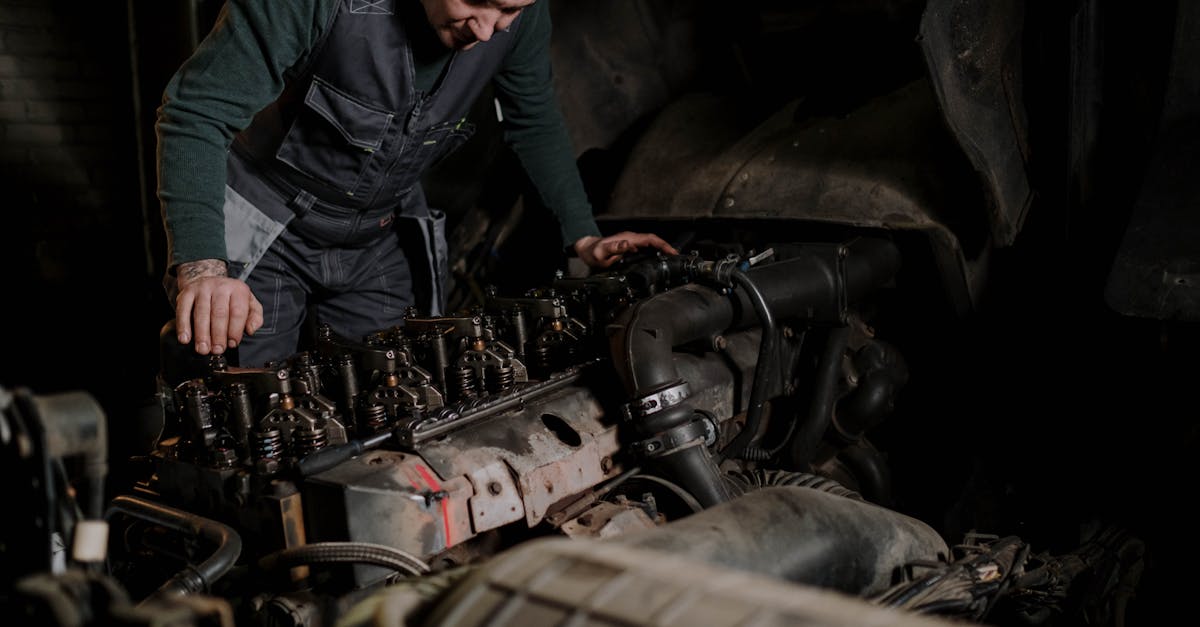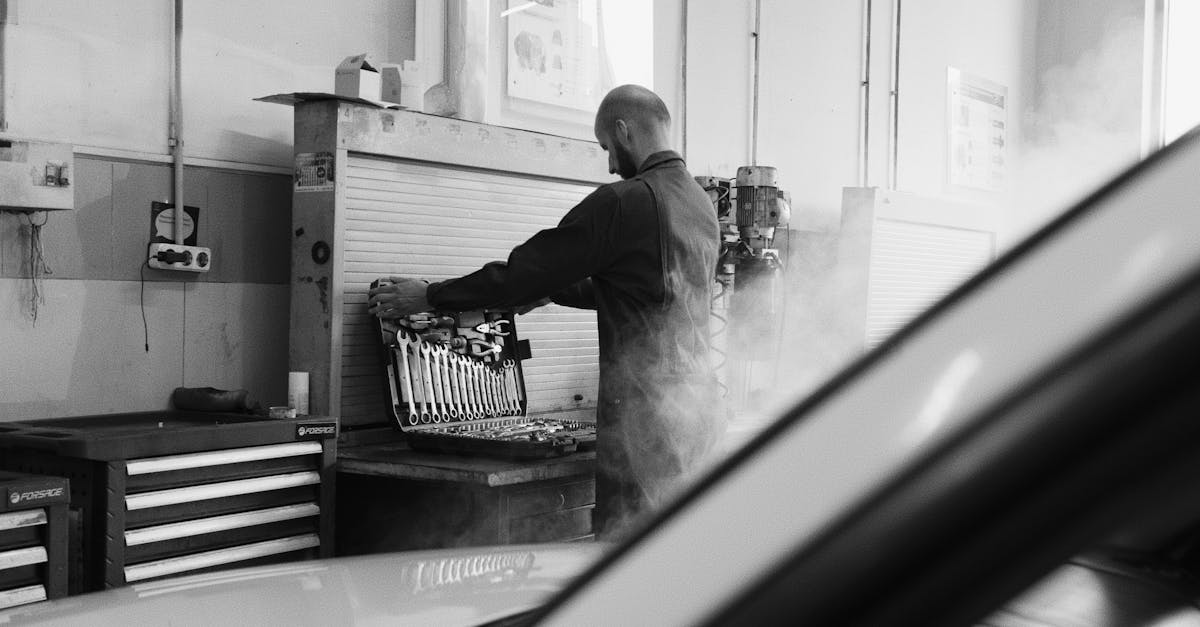
Choosing the right auto repair shop can feel like finding a needle in a haystack. But what if discovering the best “auto repair shop near me” could mean driving with confidence? Understanding where to go for car repair services not only saves time but also ensures your vehicle receives the care it truly deserves. Whether it’s routine vehicle maintenance or an unexpected auto mechanical issue, having a reliable place to turn makes all the difference.
You might think all car service centers offer the same services, but they don’t. Some specialize in engine repair, while others excel in brake service or tire replacement. The right automobile repair spot will use effective car diagnostics to address your car’s unique needs. Finding a trustworthy auto body shop transforms how you experience car trouble, making each visit less daunting and more reassuring.
Explore these insights and unlock the secrets to selecting the best car maintenance partner. Dive in and discover how you can effortlessly ensure top-notch vehicle care. Your car deserves it, and so do you.

Photo provided by cottonbro studio on Pexels
In the article
- Auto Repair Shop Near Me: Find Quality and Convenience
- Evaluating Car Service Centers
- The Role of Car Diagnostics
- Auto Body Shop: Aesthetic Repairs
- Engine Repair: Keeping Your Car in Top Shape
- Brake Service: Ensuring Safety on the Road
- Tire Replacement: Your Guide to Perfect Wheels
- Comparing Costs: Budget and Value
- Building Trust with Your Chosen Shop
Auto Repair Shop Near Me: Find Quality and Convenience
Understanding Your Needs
When you’re on the hunt for an auto repair near me, it’s essential to know what your vehicle truly needs. Every car is different, and sometimes those differences can determine how often you need service. Are you someone who drives a lot on highways, or do you mostly take short trips around town? Your driving habits can affect what type of servicing your car will need. For instance, a vehicle that frequently stops and starts may need brake services more often than one that cruises along highways.
Another key aspect is to evaluate the frequency of service visits needed for your car. Some vehicles need frequent check-ups, while others might be lower maintenance. This depends on the make and model of your car, as well as its age. By determining how often you’ll need to visit a repair shop, you can plan better for regular maintenance, ensuring your car stays in top condition for a longer time.
Exploring Local Options
Now that you have an idea of your car’s needs, it’s time to explore local options. Start by researching nearby auto repair shops online. A quick search for an “auto repair shop near me” should bring up plenty of options. But don’t just go with the first name you see. Dive deeper and look at their websites to see what kind of services they offer. Do they cater to your car’s specific requirements? Do they have any special certifications?
After doing your online homework, it’s wise to check customer reviews and ratings. Reviews can give you a good understanding of what to expect. Look for comments on different aspects such as service quality, timeliness, and customer service. A shop with lots of positive reviews is usually a good bet, but consider the specifics. If most reviews praise their fast service, but you need detailed diagnostic work, ensure that aspect is also well-reviewed.
Besides online reviews, a valuable resource can be your circle of friends and family. Ask for recommendations because someone you know may have had a great experience at a local shop. Personal recommendations often come with additional insights you won’t get from online reviews alone. Plus, if a shop knows you’ve been referred, they might treat you extra well!
Assessing Services Offered
Once you’ve narrowed down a few potential places, it’s time to assess the services offered by each shop. You want to ensure they provide comprehensive car repair services. This means looking beyond just what you think you need now and considering any future services you might require. For instance, do they handle both minor repairs and major overhauls? Can they offer both electrical and mechanical repairs?
Equally important is to check if they offer regular vehicle maintenance checks. Preventive maintenance can save you from costly repairs in the future. Regular oil changes, fluid checks, and tire rotations are just a few examples of the services a good auto shop should offer. Ensure they have a structured plan for vehicle maintenance, and don’t be shy to ask what they recommend for your vehicle.
Lastly, verify if the shop has specialized auto mechanic expertise. If your car needs specific types of repairs, such as hybrid battery replacement or diesel engine servicing, ensure the shop has mechanics trained to handle those services. Ask about their certifications and training. A well-trained mechanic can make all the difference in the quality of service your car receives.

Photo provided by cottonbro studio on Pexels
Evaluating Car Service Centers
When evaluating different car service centers, pay attention to the facilities and equipment they use. A well-equipped shop is often a sign they’re prepared for various issues your vehicle might face. You might not need all the fancy tools on every visit, but knowing they’re available is reassuring.
- Ensure cleanliness and organization: A clean shop indicates professionalism and pride in their work.
- Check for modern diagnostic tools: These tools help mechanics figure out what’s wrong with your vehicle quickly and efficiently.
- Inspect vehicle lift systems and tools: These are necessary for many types of repairs, from changing a tire to extensive undercarriage work.
Once you’ve looked around one center, compare it with other car service centers. Some might have more modern facilities, while others could offer better value for money. Look for the balance that fits your needs best. You don’t always need the flashiest shop, but you do want one that’s reliable and well-equipped.
Staff Expertise and Training
Another vital factor is the expertise and training of the staff. Verify qualifications and certifications of mechanics. Certified mechanics have undergone rigorous training and testing to ensure they can handle a range of issues. Sometimes you’ll find certifications posted on the wall, but if you don’t see any, ask about them. A reputable shop will happily share information about their team.

Photo provided by cottonbro studio on Pexels
The Role of Car Diagnostics
Using Advanced Technology
In today’s world, cars come with complex electronic systems and advanced technology. When a warning light pops up on your dashboard, a car diagnostic test can reveal the issue. This test uses special tools to read error codes from the computer in your car. These codes help pinpoint problems that might not be obvious otherwise, like issues with your engine or electrical system.
Having the right tools and technology is only part of the process, though. The real skill lies in interpreting these diagnostic results correctly. It involves understanding what the codes mean and what to do about them, which is why you need skilled technicians.
The key to utilizing advanced technology is having a team that knows how to use it effectively. This doesn’t just mean reading the codes but understanding how to fix the problem. Always ask if the shop uses up-to-date diagnostic tools and if their technicians are trained to use them properly.
Interpreting Diagnostic Results
Once the diagnostic tools provide information, the next step is interpreting those results. Understand codes for better insights into what’s happening under the hood. A trustworthy mechanic will explain these codes and what they mean for your car. They might say something like, “This code indicates a potential issue with your oxygen sensor,” and then suggest the best course of action.
Knowing the diagnostic results allows you to make informed decisions about repairs. Don’t hesitate to ask questions if you’re unsure about the results or recommendations. You should leave the shop feeling confident, not confused, about your vehicle’s condition.

Photo provided by Artem Podrez on Pexels
Auto Body Shop: Aesthetic Repairs
Identifying Best Auto Body Shops
Accidents happen, and when they do, an auto body shop is where you’ll want to head for aesthetic repairs. Whether it’s a small scratch or major damage, these shops work on the car’s exterior. Finding the right shop can mean the difference between your car looking like new or having noticeable repair marks.
Identifying the best auto body shops requires research similar to finding a repair shop. Check for the quality of their work by reading reviews and looking at before-and-after photos if available. Some shops may specialize in certain types of cars or repairs, which can be beneficial.
Pay attention to their process as well. Do they use quality parts and paints? Do they guarantee their work? Knowing the answer to these questions can help you choose where to take your car for the best results.

Engine Repair: Keeping Your Car in Top Shape
Your car’s engine is its heart, and keeping it healthy is vital. Regular checks prevent major issues from cropping up. But what are these checks, and why are they so important? Regular oil changes, spark plug replacements, and belt checks are just a few examples of routine maintenance. Performing these checks can prevent small issues from turning into larger, more expensive problems.
Addressing Common Engine Problems
It’s also important to know how to identify signs of engine trouble early. Listen to your car. Strange noises, such as knocking or hissing, often mean something needs attention. A lit-up dashboard warning light is another telltale sign.
Once you notice a sign, don’t delay addressing it. Discuss solutions with your mechanic to understand your options. They can advise whether a repair is necessary immediately or if it can wait. Knowing the right time to act can save you money and stress down the road.

Photo provided by Artem Podrez on Pexels
Brake Service: Ensuring Safety on the Road
The importance of brakes cannot be overstated. Regular brake checks are essential to ensuring your safety on the road. Brake inspections help detect worn pads, leaking fluids, and other potential problems before they become serious.
Signs You Need Brake Service
So how do you know when to get a brake check? Listen for unusual noises when braking, such as squeaks or grinding. These often mean your brake pads need replacing. Feel for vibrations through the pedal, as they can indicate problems with the rotors.
Additionally, notice any increase in stopping distance. If your car takes longer to stop than usual, it’s time for a check-up. Noticing these signs early can prevent accidents and costly repairs.

Photo provided by Swastik Arora on Pexels
Tire Replacement: Your Guide to Perfect Wheels
When to Replace Your Tires
Tires play a crucial role in your vehicle’s performance and safety. Knowing when to replace them is key. Check tread depth regularly. Tires with too little tread can slip and slide, especially in wet conditions. An easy way to check tread is the penny test: place a penny in the tread with Lincoln’s head down. If you can see all of Lincoln’s head, it’s time for new tires.
Also, look for visible signs of wear, like cracks or bulging. These are indications your tires may fail soon. Be aware of bulges or cuts, as they can lead to blowouts on the road.
Choosing the Right Tires
When you’re ready to get new tires, consider your driving conditions. Are you driving mainly on snow, dirt, or highways? There are specific tires for different conditions. Ensure compatibility with your vehicle by checking the manufacturer’s recommendations.
Tires aren’t just about size; they also affect fuel efficiency and ride comfort. Choose tires that provide a good balance for your everyday needs. This choice can improve your car’s performance while keeping you safe.

Photo provided by Gustavo Fring on Pexels
Comparing Costs: Budget and Value
Get Multiple Quotes
Getting your car fixed can be expensive, which is why comparing costs is essential. Get multiple quotes from different shops for the service you need. This will allow you to find the best deal without sacrificing quality.
When you compare prices, weigh cost against quality of service. Sometimes, a cheaper fix might not be the right long-term solution. Consider the value you’re getting for the price. A slightly pricier shop might use better parts or provide a longer warranty.
Understanding Price Variations
Ever wonder why prices can vary so much? Research common industry standards to get an idea. Labor costs, parts, and location can all affect the overall price. Asking shops to explain their pricing can also help you understand what you’re paying for. For detailed estimates, ask for a breakdown of costs if needed. This way, you can see exactly what you’re getting for your money and make informed decisions.

Photo provided by Mario Spencer on Pexels
Building Trust with Your Chosen Shop
Establishing a Relationship
Once you’ve found a shop you’re happy with, establish a good working relationship with them. Communicate openly with your mechanic. Don’t be afraid to express concerns or ask questions. Clear communication can prevent misunderstandings and ensure your car gets the care it needs.
Develop trust through consistent service by returning for regular maintenance and repairs. When the shop knows your vehicle’s history, they can offer better, more personalized service. Loyalty to a single shop can lead to cost savings and peace of mind.
Scheduling Regular Visits
To keep your car running smoothly, plan for regular preventive maintenance. This may include oil changes, tire rotations, and brake checks. Preventive care ensures longevity of your vehicle, keeping it on the road longer and reducing the risk of costly repairs.
Additionally, it’s wise to keep accurate records of services done on your car. These records help you track what’s been done and what might be needed in the future. They can also come in handy if you ever decide to sell your car, showing potential buyers that your vehicle has been well cared for.
Your Car’s Best Friend Awaits
Finding the right place for your car brings peace of mind. A great service center means expert care for your vehicle. Your car stays safe and runs smoothly. You save time and money. Plus, you trust your mechanic to keep you on the road.
Start by making a list of potential places nearby. Check their reviews and services online. Visit one or two shops to get a feel for their customer service. This helps you make an informed choice with confidence.
Now, take action! Call a shop today to schedule a simple car check-up. You’ll see how they handle your needs and experience the quality service they offer. Your car deserves the best, and so do you!
